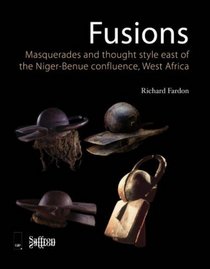Search -
Fusions/Masquerades and Thought Style East of the Niger-Benue Confluence, West Africa (Saffron Afriscopes)
Fusions/Masquerades and Thought Style East of the Niger-Benue Confluence West Africa - Saffron Afriscopes
Author:
Fusions takes the masks of West Africa's Upper Benue River region out of the museums and private collections, where many accumulated in the twentieth century, and restores their cultural and social contexts. The book argues that Benue masquerades deserve appreciation as the materialized forms taken by the thought styles of their original creator... more »
Author:
Fusions takes the masks of West Africa's Upper Benue River region out of the museums and private collections, where many accumulated in the twentieth century, and restores their cultural and social contexts. The book argues that Benue masquerades deserve appreciation as the materialized forms taken by the thought styles of their original creator... more »
ISBN-13: 9781872843605
ISBN-10: 1872843603
Publication Date: 2/1/2005
Pages: 208
Rating: ?
ISBN-10: 1872843603
Publication Date: 2/1/2005
Pages: 208
Rating: ?
0 stars, based on 0 rating
Genres:
- Arts & Photography >> History & Criticism >> General
- Arts & Photography >> History & Criticism >> Regional >> African
- History >> Africa >> Niger




